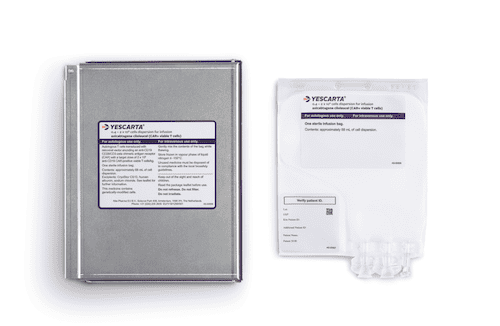
Bristol-Myers Squibb has proved its case for suing Gilead over the alleged patent infringement of its CAR-T therapy Yescarta, winning $752m in the effort.
Gilead has been ordered to pay BMS $585m in damages, plus a 27.6% running royalty on all sales of Yescarta (axicabtagene ciloleucel).
The basis of the lawsuit is that Yescarta, which is marketed by Gilead’s Kite Pharma division, infringed on a patent licensed by BMS’ Juno Therapeutics from Sloan Kettering and the Memorial Sloan Kettering Cancer Center for the exclusive rights to the technology.
It alleged that Kite scientists copied research from the scientists at Sloan Kettering to advance their own CAR-T development, which then lead to the approval of Yescarta.
In CAR-T therapies, patients’ cells are harvested and modified so they are more likely to seek out and destroy cancer cells expressing a particular antigen. Once reprogrammed, the T cells are infused back into the patient in order to fight the cancer.
Yescarta has been slow to growth, bringing in $183m in the first nine months of the year from its use in diffuse large B-cell lymphoma and other B-cell lymphoma types.
In a statement, Gilead said it steadfastly disagreed with the decision.
“We remain steadfast in our opinion that Sloan Kettering’s patent is not infringed and is invalid,” it said.
“Given that Kite independently developed Yescarta and assumed all of the risk in its discovery and development, we do not believe Sloan Kettering and Juno are entitled to any level of damages.”
BMS will be especially pleased with the verdict, given that it has recently announced a positive phase 1 trial of its liso-cel (lisocabtagene maraleucel) CAR-T therapy.
The efficacy data looks similar on paper to the two approved CAR-T therapies – Yescarta and Novartis’ Kymriah (tisagenlecleucel). It was studied, however, in a much larger group of patients, and BMS is also hoping to compensate for late entry with a strong safety profile.
BMS acquired liso-cel from its $6bn takeover of Celgene – prior to being acquired, Celgene had put the CAR-T at becoming a potentially $3bn product.
Gaining approval for liso-cel is a critical compenent on the payout of BMS’ takeover of Celgene, and is one of three drugs tied to the CVR payments. To qualify, it will have to secure FDA approval by the end of next year.




